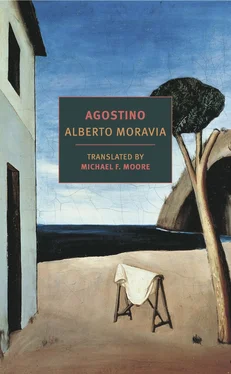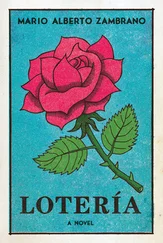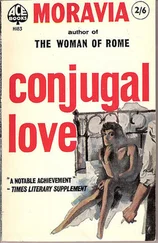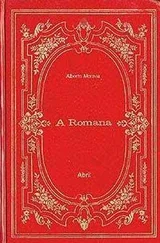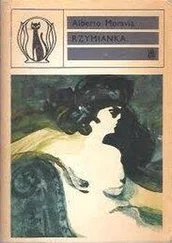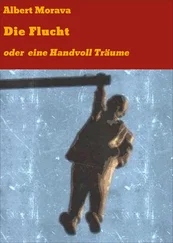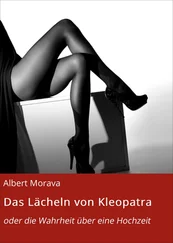The boys had packed wet sand into a kind of makeshift pit. Pinecones, pine needles, and brush were on the fire. Laid across the mouth of the pit, a dozen ears of corn were slowly roasting. Nearby you could see, on top of a newspaper, a big watermelon and clusters of fruit. “What a good boy, little Pisa,” Berto started up again after they were sitting down, “now you and Homs can be buddies. Sit a little closer to each other. You’re, how can I put it? You’re brothers. He’s dark, you’re white, otherwise there’s no difference. You both like going for boat rides.”
The black boy snickered contentedly. Saro, huddled over, was busy turning the ears of corn on the fire. The others were snickering. Berto was the most derisive of all, shoving Agostino into the black boy so hard that for a moment they were on top of each other, one snickering at his abasement as if it were flattery, the other uncomprehending and filled with repulsion. “I don’t understand you guys,” Agostino blurted out, “I went for a boat ride. What’s wrong with that?”
“Oh, what’s wrong with that? He went for a boat ride. What’s wrong with that?” many voices repeated, ironically. Some of the boys were holding their bellies from laughter.
“Yeah, what’s wrong with it?” Berto repeated in the same tone of voice. “Nothing at all. On the contrary, Homs thinks everything’s right about it. Don’t you, Homs?”
The black boy agreed, jubilantly. The truth finally began to dawn on Agostino, however vaguely. He couldn’t help but establish a connection between the teasing and Saro’s strange behavior during the trip. “I don’t know what you mean,” he declared. “I didn’t do anything wrong during the boat ride. Saro made me recite some poetry, that’s all.”
“Oh, oh, poetry,” he heard the cries from all around.
“Saro, tell them I’m not lying,” Agostino cried, turning red in the face.
Saro said neither yes nor no, settling for a smile and sneaking what one might call a curious glance in his direction. The boys interpreted his seemingly indifferent but in fact treacherous and self-serving behavior as a contradiction of Agostino. “Of course,” many voices repeated, “ask the innkeeper if the wine is good, right, Saro? Nice try. Oh, Pisa, Pisa.”
The vindictive black boy seemed to be enjoying this more than anyone. Agostino turned to him and, trembling with rage, abruptly asked, “What’s so funny?”
“Why nothing,” said Homs, stepping aside.
“Hey, don’t fight, Saro will make peace between you,” Berto said. But the boys were already talking about something else, as if what they had been alluding to was moot and no longer worth mentioning. They talked about how they had snuck into a field and stolen the corn and fruit. About how they had seen the farmer chase after them, armed and furious. About how they had fled and the farmer had fired his gun at them without striking anyone. The ears of corn were ready, browned and roasted on the embers. Saro removed them from the grate and, with his usual paternal complacency, distributed them to everyone. Agostino took advantage of a moment when everyone was intent on eating, and with a somersault made his way to Sandro, who off to one side was nibbling at his corn.
“I don’t understand,” he started. The other boy gave him a knowing look, and Agostino realized there was no need to say more. “Homs came on the streetcar,” Sandro uttered slowly, “and he said you and Saro had gone for a boat ride.”
“What’s wrong with that?”
“Keep me out of it,” replied Sandro with his eyes to the ground, “it’s between you two, you and the black boy. But as for Saro…” He let the sentence drift off and stared at Agostino.
“As for Saro?”
“Well, let’s just say that I wouldn’t go on a boat ride with Saro.”
“Why not?”
Sandro looked around them and then, lowering his voice, he gave Agostino the explanation he had almost intuited without fully understanding. “Oh,” said Agostino. And without being able to say more, he returned to the group.
Squatting among the boys, with his cold good-natured head leaning on one shoulder, Saro was the very picture of a good father surrounded by his children. But now Agostino couldn’t look at him without a deep and even stronger hatred than he felt toward the black boy. What was particularly despicable about Saro was his silence in the face of Agostino’s protests, as if to insinuate that the things the boys had accused him of really had taken place. Yet he couldn’t help but perceive the contempt and derision that separated him from the others. The same distance, now that he noticed, between the gang and the black boy. Except that the black boy, rather than feel humiliated and offended like Agostino, seemed to be amused by it. More than once he tried to talk about the subject burning inside him, but he was met with ridicule and apathy. Besides, although Sandro’s explanation couldn’t have been clearer, Agostino still couldn’t fully understand what had happened. Everything was obscure both in and around him, as if rather than the sunlit beach, sky, and sea, there were only shadows, fog, and vague menacing shapes.
In the meantime the boys had finished devouring the roasted corn and thrown the cobs away in the sand. “Should we go for a swim in Rio?” one of them proposed, and the proposal was instantly accepted. Even Saro, who was supposed to bring them all back to the Vespucci beach in his boat later, stood up and came with them.
Walking along the beach, Sandro broke away from the group and joined Agostino. “You’re mad at the black kid,” he whispered, “so scare him a little.”
“How?” asked Agostino, downcast.
“Beat him up.”
“He’s stronger than me,” said Agostino, remembering their arm wrestling, “but if you help me—”
“What’s it got to do with me? This is between you and him.” Sandro said these words with a special tone, as if to insinuate that his thoughts as to why Agostino despised Homs were no different than everyone else’s. Agostino felt his heart pierced by a profound bitterness. Even Sandro— the only one who had shown him any friendship so far— also participated in and believed the slander. Having offered this advice, Sandro walked away from Agostino and joined the others, as if he were afraid of being near him. From the beach they now passed through the undergrowth of young pines. Then they crossed a sandy path and entered into the canebrake. The reeds were dense, and many of them had feathery white plumes on top. The boys appeared and disappeared between the tall green stalks, slipping on the cane sap and shaking the canes with a dry rustling of the stiff fibrous leaves. They finally found a point where the canebrake opened up to a small muddy riverbank. When the boys appeared, big frogs leapt from all around into the glassy compact water. And here, one leaning against the other, they started undressing before the narrowed eyes of Saro who, sitting on a rock close to the reeds, seemed intent on smoking but was spying on them. Agostino was embarrassed, but fearing more teasing, he, too, began to loosen his trousers, as slowly as possible, casting furtive glances at the others. But the boys seemed overjoyed to get naked and tore off their clothes, bumping into one another and joking around. Against the green background of the cane, their bodies were brown and white, a miserable, hairy white from their groins to their bellies. This whiteness revealed something strangely deformed, ungainly, and overly muscular about their bodies, typical of manual laborers. The only one who didn’t actually seem naked was Sandro, blond in the groin and on the head, graceful and well proportioned, perhaps because his whole body was evenly tanned. Not naked, that is, in the foul manner of kids at a public swimming pool. The boys, getting ready to dive in, acted out hundreds of obscene gestures, tripping, pushing, and touching each other with brashness and an unrestrained promiscuity that shocked Agostino, who was new to this type of thing. He too was naked, his feet bare and caked with cold mud, but he would have preferred to hide behind the cane, if only to escape the looks cast his way through the half-closed eyes of Saro, crouching and motionless, like a giant toad who dwelled in the canebrake. Except, as usual, Agostino’s repulsion was weaker than the murky attraction that drew him to the gang. So thoroughly intermingled were the two that he couldn’t tell how much pleasure was actually concealed by his loathing. The boys measured each other up, boasting of their virility and physique. Tortima was the most vain and at the same time the most brawny, the most deformed, the most plebeian and sordid of the group. He got so excited that he shouted to Agostino, “What if I were to show up one nice morning at your mother’s, naked as the day, what do you think she’d say? Would she come with me?”
Читать дальше
